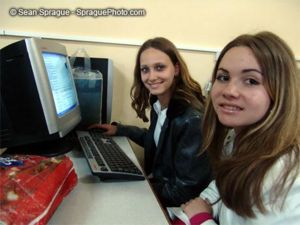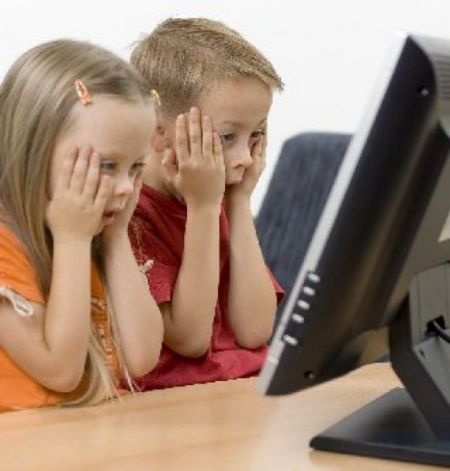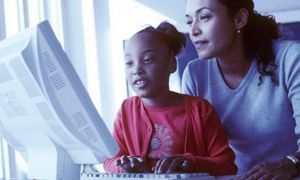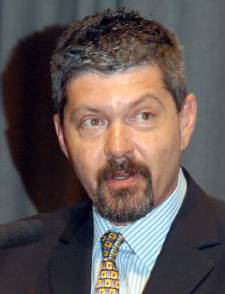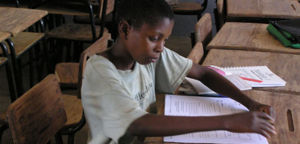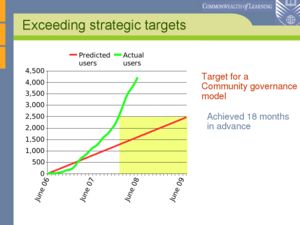Social Issues: The Effects of Computers on Children
| Students @ Work - a student collaborative writing project. Help us by providing feedback on the Discussion page. |
Contents
[hide]- 1 Introduction
- 2 Social Issues: The Effects of Computers on Children
- 3 What Can WikiEducator Do To Help With the Issue?
- 4 What are OERs?
- 5 Who is the WikiEducator community?
- 6 What is the significance of Open Education and the WikiEducator Project?
- 7 Why Choose WikiEducator?
- 8 Strategy
- 9 References
- 10 Additional Resources
- 11 Final Project Important Information
- 12 Peer reviews
Introduction
The introduction of the computer and the internet has had a profound effect on the lives of our children. Today, computers have become extremely common, with nearly every child having access to one. Through this extensive use, children become closely connected with computers, using them at home, at school, at a childcare center, or in any other setting. The traditional ways of learning have changed, as computers now play a large role in childhood development. Many wonder whether this is a good or bad thing. As computers play a larger and larger role in the lives of our children, it is important to ask what impact they are having.
Studies have shown that computers have a profound effect on several critical areas of a child's life: education, entertainment, early social relationship and health[1]. The outcome of the relationship between children and computers lies between two extremes, beneficial or harmful. Without the proper guidance, children may suffer physical, social, and psychological effects from prolonged, unmonitored computer use. Yet, with the proper supervision, parents can guide their child's experience with computers, largely negating the negative effects. Thus, it is important for parents, teachers, and other adults who deal with children on a regular basis to learn how to make sure children get the right experience from computers and the internet.
To help adults doing that effectively - We introduce WikiEducator. Supported by the OER foundation, WikiEducator offers a large amount of free resources to acknowledge people about the issues and guidelines to building a proper relationship between computers and children.
Social Issues: The Effects of Computers on Children
Positive Effects
Education:
- Many excellent educational software programs exist to help children learn. From educational games to a variety of
other programs aimed at children, these programs can help improve a child's skill in a number of different critical areas, including vocabulary, math, logical thinking, typing, history, and many more[2]. These programs make learning easier and faster than many other traditional methods such as textbooks or oral lectures.
- Computers also change the way children are educated at school. They receive more homework and
assignments online. In many computerized classes, they have homepages to ask question or receive answers from either friends or teachers. The Internet provides students with a myriad of extra resources beside their textbooks for knowledge and research.
- Children who used computers and the Internet at an early age have a tendency to do better in class than
those who don't. Computers literacy is becoming an essential skill, as almost every school in the country has computers. This will also be important later in life, as computers play an increasingly large role in our lives.
Entertainment:
- A lot of computer games are designed to help children learn language, math, logical thinking and many other skills[1].
A well designed game for children can replace common teaching methods such as textbooks and lectures.
- Most children love to play games, as opposed to studying. When games are both entertaining and educational, children
do not perceive it as work and end up learning and having fun at the same time.
- A large number of these educational games are available for children of all ages and are available at reasonable price.
Social relationships:
* Computers and the Internet have revolutionized the way we communicate, bringing tools for children to communicate
online. Web applications such as E-mail, AIM, Facebook, and MySpace are well known and widely used by children.
Whether it be making new friends online or keeping up with their old friends, children have a new source of
social interaction. With the ability to send a message to someone halfway around the world in mere moments,
the internet removes many of the geographical boundaries and allows people all over the world to communicate
with each other.
* The internet provides children with an outlet to express their creativity and share ideas. Through websites
such as YouTube, MySpace, and even Wikipedia, children can share their ideas, show off their artistic talents,
and share their experiences with the world.
* As computers and the internet player a larger role in our society, in is important for children to learn how to use them at a young age. Technology will continue to become increasingly more important in both the work environment and our everyday lives, hence the need for children to become more familiar with technology.
Health:
Why does E.coli in hamburger patties makes us sick? What are the nutrition values in a Happy Meal? At a certain age, children become intrigued and decide to explore many different subject matters. Their curiosity drives them to learn and they will carry this knowledge for the rest of their lives. Unfortunately, parents often do not know the answers to these broad arrays of questions. Many adults do not have the answers to questions related to highly technical issues, in particular health issues. Even if they did know, their answers would be too conceptual or too complicated for children to understand. With dynamic online learning, children now has the opportunity to fulfill their curiosity with online information, all explained at a level that children can understand. A Child Health development course presented by AMREF on WikiEducator fills this role, addressing all the health concerns that children should be aware of while being presented in colorful visual diagrams, moving videos, and with information written in language that children can understand. By providing children with knowledge on common diseases and nutrition, the internet allows children to become properly informed and make the right choices to prevent future health risks.
Negative Effects
Physical:
- Extended computer use deprives children of physical activity, increasing their risk of obesity. Studies have found that children do not spend less time in front of the television to compensate for the increased amount of time spent in front of the computer[1]. Instead, they choose to forgo physical activities such as competitive sports. Children living an increasingly sedentary lifestyle run higher risks of obesity, as well as all the diseases associated with it.
- Furthermore, children run the same physical risks that adults do with regards to excessive computer use, namely carpal tunnel syndrome, back problems, and eye strain[3]. Though studies on this subject using children have been limited, the findings are expected to be similar to that of the adults[1]. Another factor that should be taken into account is that most computers are designed for adults. Children run a greater risk of injury because of this.
Social Development:
- Another problem is with social development. There have been concerns that excessive computers use may stunt the development of social skills and interpersonal relationships. Though the use of social networking tools such as Facebook and Twitter have made these concerns largely irrelevant, children need guidance to make sure they get the proper experience. Whether or not computers are used to augment a child's social development largely depends on what they use it for. The negative effects of extensive computer use on social development have been well documented. In one extreme case, a Japanese man 'married' a video game character[4] .
Psychological:
- Due to the sheer amount of information available on the internet and the number of people using it, letting children use this technology unsupervised can negatively impact their psychological health. The internet gives people access to multi-user domains (MUDS), which are virtual worlds where strangers can interact together. Examples include multi-user chat rooms and multi-player games. Studies have found that extended use of MUDS can be linked to increased loneliness, depression, and may blur a child’s ability to tell reality from simulation[1]. Furthermore, there are few restrictions on who can use the internet. The presence of online predators targeting children has been widely publicized by the media[5].
- Pornography is highly prevalent on the internet. Children with unrestricted access to the internet may inadvertently stumble onto these sites. Access to sexually explicit material at a young age can be detrimental to the child's psychological health[6].
- As video games increase in popularity, there is a risk of children being exposed to extreme violence. Some studies have linked violent video games with children being desensitized to violence, as well as increased hostility and aggression[7].
Is Technology Worth the Risk?
Despite these drawbacks, the use of technology has the potential to greatly improve our lives. The sheer wealth of information available makes the internet an invaluable source of education. Computer will continue to have large role in our society,
thus increasing the importance of teaching children computer literacy.
As educators, we have the power to shape the experience children receive from technology. The negative effects associated with computer use can be largely eliminated through proper supervision of computer use. Thus, it is important that educators, parents, and other adults who work with children become computer literate and understand ways to guide children to make good choices with regards to computer use. WikiEducator has the resources to aid adults with this. WikiEducator networked over thousands of Educators like Open Education Resources (OER) that shares specific subject area learning modules in various grade levels, to ensure high quality education lessons is shared and available to all.
What Can WikiEducator Do To Help With the Issue?
- WikiEducator contains links to various sources of information that can help parents protect their children better while using computers.
- Since it is free to use, easy to contribute or edit, WikiEducator has a huge database showing parents more options, topics and solutions concerning children and the safe use of computers and the Internet.
- As a collaborative project, parents and teachers can share and discuss the best methods they have found, making education more complete for the children and less stressful for the educator.
- Parents can get specific web-pages they want right away from WikiEducator with little time and effort instead of searching on different, separate sites. WikiEducator provides a one stop shop for the educational need of both adults and children.
- If parent don't like some of the materials, they can join in with their own sources or edit the existed ones. Parents can be part of WikiEducator- a dynamic online society to educate their children together.
------------------------------------------------------------------
To demonstrate the sufficiency of WikiEducator in providing information, here are some example:
What are OERs?
To start, let's get to know a little bit about WikiEducator and the OER foundation:
- Open Educational Resources (OERs) are educational materials that are licensed in ways to provide permissions for individuals and institutions to reuse, adapt and modify the materials for their own use (Information that can be used by the masses that is educational, licensed and certified).
- OERs are created and contributed by everyone and are available to share to all. This feature makes OERs a free, dynamic, and pleasant environment for people to spread their ideas, creations, knowledge and experience,... or to learn those from others.
- OERs are the inspiration and the core of action of WikiEducator.
For more general information about OERs and their categories of resources, please go to
Who is the WikiEducator community?
- Established in 2006 mainly by Dr.Wayne Mackintosh, WikiEducator serve the community with OERs.
- WikiEducator is owned by the community.
- WikiEducator is also an international community of teachers, lecturers and trainers creating OER and sharing their experiences in using OER to improve teaching and learning around the world.
What is the significance of Open Education and the WikiEducator Project?
- The WikiEducator community is improving access to education globally by radically expanding the availability of free learning content using a mass-collaboration model of OER development. (It is a vessel and tool for OER's)
- The equality of educational opportunity has never been more important at any point in time than it has now. As technology has radically changed our society and economy, the need for education has increased tremendously. There is a strong correlation between wage and education level, making it essential that students receive a proper education[8]. With the growing demand for education, it is necessary for educators have a proper curriculum.
- The use of the internet has dramatically changed the way we communicate. We can send messages to people across the world in mere moments. People from all over the world can collaborate on projects, making geographical boundaries irrelevant. In addition to this, the internet allows us to share ideas and information, making both accessible to the entire world.
- Open education is the concept that education should be shared freely on the internet. Knowledge, ideas, and other teaching methodologies should not be restricted by copyright, as this hinders creativity. This was inspired by concepts such as open source, open data, and Creative Commons.
- WikiEducator seeks to correct the inequalities in educational opportunity through the use of the internet. They intend to do so by improving access to education globally by expanding the availability of free educational curriculum. WikiEducator is working in concert with the Free Culture Movement to achieve this goal by 2015. They seek to develop free content for use in Universities, Polytechnics, Schools, and other informal educational environments. To do so, WikiEducator requires the mass collaboration of educators around the world. WikiEducator seeks to build a permanent network of educators aimed at designing, developing, and delivering a free educational curriculum. WikiEducator also seeks to build capacity in the use of Mediawiki, facilitate collaboration, and foster new technologies that will reduce costs, widen access, and improve the quality of education around the world.
- Global projects include OER New Zealand, which is aimed at creating, sharing, and reusing digital content to support New Zealand's national curriculum. Other projects include Learning 4 Content, which provides free wiki skill training to educators around the world. Learning 4 Content has trained teachers in over 113 countries.
Some basic headlines about WikiEducator that will shine some light on the organization
The Open Education Resource (OER) Foundation was officially launched on 17 September 2009 by Dr. Robin Day, Chair of the board of Directors of the OER Foundation to coincide with Software Freedom Day. The OER Foundation is a new not-for-profit organization that will assist education institutions in New Zealand and around the world to reduce costs through open education resources. These are materials which educators are free to reuse, adapt and modify without restriction.
Yesterday, Dr Robin Day, Chair of the Board of Directors and Deputy Chief Executive of Otago Polytechnic, signed the Cape Town Open Education Declaration on behalf of the OER Foundation marking the official launch of this new entity headquartered in Dunedin, Otago. “In education, we shouldn't lead from behind”, said Dr Day. “The OER Foundation is an open collaboration and we invite all education institutions to join us in this exciting endeavor which will produce tangible returns for all involved.”
The William and Flora Hewlett Foundation Funds The OER Foundation To Support WikiEducator
The William and Flora Hewlett Foundation, award the OER Foundation $200,000 to support WikiEducator to improve content interoperability and further support for training through the Learning4Content project. As quoted by the Hewlett Foundation, "The World Wide Web presents an extraordinary opportunity for people and institutions everywhere to create, share, and use valuable educational materials. Open Educational Resources, as these free tools and content are called, can include full courses, textbooks, streaming videos, exams, software, and any other materials or techniques supporting learning. With the Hewlett Foundation's help, the field of Open Educational Resources has become a worldwide movement. The Massachusetts Institute of Technology offers materials from 1,800 courses online. European SchoolNet, an international partnership of more than thirty European ministries of education, brings together K-12 materials from many of its organizations. OER Commons allows teachers and professors from around the world to collaborate. Open Educational Resources are well suited to transform teaching and learning. The Education Program makes grants to continue to develop networks for sharing these free, high-quality educational materials. The Program and its grantees also work toward creating more flexible copyright and licensing systems to make more information available to the public. Additionally, the Program makes grants to organizations working on creative ways to use Open Educational Resources to improve learning, such as educational games and open textbooks. Grantees also continue to research and evaluate these methods of education.
 Why Choose WikiEducator?
Why Choose WikiEducator?
WikiEducator was conceived as a website for educators to develop free educational content that anyone can use, modify and distribute. As the WikiEducator community has evolved, distinct uses of the site have emerged:
* Free Content development - these are the actual content pages; * Planning pages for Projects developing free educational content; * Community Network nodes which facilitate a range of free content activities; * Research projects hosted on WikiEducator
The William and Flora Hewlett Foundation awarded the OER Foundation $200 000 for WikiEducator's Learning4Content. WikiEducator is building capacity among teachers/educators to develop free content for learning, and prioritizing wiki skills training in developing countries.
Learning 4 Content (OER)
- Tell me and I'll forget, show me and I may not remember, involve me, and I'll understand.
The Learning4Content project is inspired by this meaningful native North American proverb. We are building capacity among teachers/educators to develop free content for learning, and prioritize wiki skills training in developing countries.
Outcomes/Results
The Learning4Content project is likely the world's largest attempt to develop wiki skills for education. Launched in January 2008, by 30 June 2009 WikiEducator had facilitated 86 workshops training 3,001 educators from 113 different countries.
<kaltura-widget kalturaid='251518' size='L' align='C'/>
Testimony of an Educator
Vincent Kizza, Uganda
“I consider my coming to WikiEducator as one of the great things that have come my way...” My Name is Vincent Kizza , a science educator from Uganda, East Africa. Just before the Elearning Africa 2007 conference in Accra, Ghana, I authored an article in their online magazine entitled Towards a different ICT pedagogy for Africa, that elicited considerable reaction. Among them, was Günther, a renowned WikiEducator practitioner and science teacher based in Germany who invited me to WikiEducator. I have never looked back since then. The idea of participating in authoring open education resources appealed to me greatly and I still see it as a very crucial step in developing not only my country but also the whole of Africa at large. The work already in place was so inspiring that one could not fail to perceive the selfless and countless man hours invested in developing them. Today, I coordinate the activities on the Ugandan node and I am passionately involved in a project with Ugandan and German educators to create and develop an OER project supporting innovative physics teaching in Uganda among others. I have convened and facilitated three Learning4Content workshops in Uganda. WikiEducator is also a forum for me to keep in touch with latest elearning technologies as I keenly follow discussions on the different threads, not to mention personal development through the marvelously crafted resources such as Phil Bartle’s community development course. I now use these materials to empower my own community where I live. I find Phil's materials, handy, practical and down to earth. I could never have imagined becoming a "community organizer" without paying through the nose... and I have discovered the marvels of community governance being elected to WikiEducator Community Council. Bravo WikiEducator! What better way to pay back than devoting my entire life to WikiEducator activities!
Strategy
We make the assumption that the majority of educators are uninformed about the existence of WikiEducator. We also assume that educators entered their profession for the altruistic goal of educating others rather than for strictly financial purposes. We also assume that educators will be willing to share their best practices and curriculum to improve education around the world, rather than keep their curriculum to themselves as their own intellectual property. And finally, we assume that educators will be willing to give back to the community and collaborate with others, rather than just take information from the site without giving anything back.
Who is our audience?
Educators, including teachers, lecturers, professors, and trainers, would find WikiEducator to be an invaluable teaching platform. WikiEducator provides a great amount of freedom with regards to being able to express certain ideas to a general or targeted audience in different areas of the world. It also offers the experience of self-publishing, new dimensions in teaching, an opportunity to be involved with the community, and taking social responsibilities, which establishes a global vision of knowledge sharing and free education.
Recommendations
To increase its membership, WikiEducator needs to inform educators about its existence. The best group to target would be the educators just starting their careers. WikiEducator can offer this group the most, as they have yet to develop their lesson plans and are still learning the best practices of the trade. Furthermore, their experiences with WikiEducator will turn them into lifelong contributors, as they will become part of the community. As they become more experienced, their experiences will be passed on to the next generation of WikiEducator users, fueling the sustained growth of the project. Older, more experienced educators will be more difficult to convince, as they need to see results before they would take part in the project.
To spread the word, the first place that WikiEducator needs to target are the schools. With the recent budget cuts to public education, schools will be looking to cut costs any way they can. As WikiEducator offers free educational content, the needs of both parties will be satisfied. Getting schools to introduce their teachers to WikiEducator will allow the website to reach a wider audience of educators through a single intermediary. Another way that WikiEducator can increase its user base is to reach professors teaching potential educators about its existence. This way, WikiEducator can introduce a new generation of educators to its services.
How will we convince them that Wikieducator is a worthwhile investment?
- By achieving significant milestones, WikiEducator has demonstrated its growth is sustainable. As shown on the diagram, the target number of registered users was achieved 18 months ahead of schedule.[9]. WikiEducator continues to be a successful OER model, showing the power that collaborative communities have in shaping the future of education.
- WikiEducator promotes the growth of individual content development, as well as projects created by organizations like the one shown above. If a group of college students can harness the power of an OER initiative, then imagine what can be created by a small business venture or full multi-national movement.
- In long term, WikiEducator will grow up steadily and quickly. As long as there are people out there who seek free education, WikiEducator will prevail.
- Schools are spreading information about WikiEducator. Many courses include working directly with the project as a requirement. Students' work can be found more and more on the site. The expansion of WikiEducator is a certainty.
References
- ↑ Jump up to: 1.0 1.1 1.2 1.3 1.4 Shields, M. (2000). "Children and Computer Technology: Analysis and Recommendations", The Future of Children, 10(2): 4-30 [1]
- Jump up ↑ Newberry, Brian. "Computers - Possible Negative Effects Of Computer Use, Possible Positive Effects Of Computer Use, Developmentally Appropriate Uses Of Computers". Retrieved 27 November 2009
- Jump up ↑ American Optometric Association. "Impact of Computer Use on Children's Vision". Retrieved 29 November 2009
- Jump up ↑ Moore, Matt (25 November 2009). "Japanese gamer 'marries' Nintendo DS character", The Daily Telegraph(London)
- Jump up ↑ Office for Victims of Crimes. "Internet Crimes Against Children". Retrieved 28 November 2009
- Jump up ↑ Lawton, Jodie. "Children and Internet Safety". Retrieved 28 November 2009
- Jump up ↑ Palo Alto Medical Foundation. "The Impact of Video Games on Children". Retrieved 28 November 2009
- Jump up ↑ Murnane, Richard (Fall 2007). "Improving the Education of Children Living in Poverty". The Future of Children 17(2): 161-182 [2]
- Jump up ↑ WikiEducator:WikiEducator 3.0, "[3]". retrieved 28 November 2009
Additional Resources
Computers for Young Children: Gold or “Fool’s Gold?”
Technology: Its Effect on Children
Computers and Young Children: Social Benefit or Social Problem?
Computer Helps Deaf Children To Learn Sign Language
Computers and Young Children
Video Games and Children
Children and Video Games
Research and Guidelines for Children's Use of the Internet
Final Project Important Information
CIS - 09F_0531: Computers and the Internet in Society: FALL 2009 Final Project Project communication, draft document sharing, revision, final presentation and publication.
PROJECT SCHEDULE
' Final Project Due Date: November 28, 2009'
November 25th 11pm: Individual section completes to collaborate work.
November 26th 11pm: Introduction and conclusion due.
November 27th 11pm: Editor’s final review.
November 28th 10:00pm: Finalizes and submit project. Ready for peer review.
December 2nd Final submission
Group Members
Danielle Azevedo
Danielle Fee
Bao Ha
Kristina Kenna
Austin Lam
Yan Lei
Lida Sutachan
Alexander Town
Peer reviews
Group 4 - Social Issues: The Effects of Computers on Children
Mechanics - 3 - references are good, but more than 4 grammatical errors were found. Nonetheless, above average grammar, I just found those because I'm pickier than normal.
Organization 3 - Transition from children to wikieducator is not smooth, wikieducator organization is not perfect.
Originality 4
Requirements 4
Content 4
Collaboration 2 - 5 people made changes to the wiki, out of a group of 8, and the vast majority of them were BaoHa's
They need better formatting and organization. Some sentences were even broken into parts.
Group 4- The effects of computers on children
4- mechanics
4- organization
4- originality
4- requirements
4- content
4- collaboration
I think that group 4 did a great job. It looks like everyone participated and contributed by providing information about the topic in depth. They have good points and they're page is well organized.
I think they covered pretty much everything needs to be discussed. I like the way they're page is set up, and I don't think that there's anything they could've done differently to make it better.
Group 4 - Social Issues:The effects of computers on children.
Mechanics - 4 Organization - 4 Originality - 3 Requirements - 4 Content - 4 Collaboration - 4
I scored this project as high as I did due to the fact that it met or exceeded all the criteria for the scoring. The project overall was well done and did a very good job of meeting the goal of the project. I only marked the originality down for the fact that as with all the projects it was a work of research and citing sources. The only suggestions I would give for improving the project would be to make it a little more concise, maybe reduce the amount of information the project contains. Overall it was a well done and seemed to have a lot of collaboration and participation from all the members of the group.
Group 4 - Social Issues: The effect of computers on Children
There are eight members in the Group 4 and only four members actively contributed to the report. Out of 40 I will assign 10 points for each member who contributed to the report. By viewing the history section of the page I see Yan Lei, Bao Ha, Austin Lam, and Lida have been contributed evenly to the report.
Lot of work are cited from other sources but have not given the credit for them. I suggest that they should include them under references. Since this is the final report I think it would be better to remove the Final project Information section including internal due dates.

